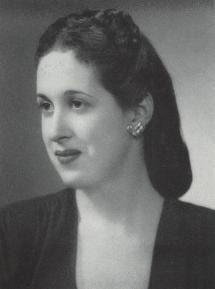Abstract
Judith Vivienne Korey begins Part 1 of her interview by describing her family background, her and her father’s negative attitude toward her mother’s advertising job, and Providence during her early years. She goes on to explain her reasons for deciding to attend Pembroke College and the career aspirations she went in with. Korey remembers receiving mixed messages about women’s roles in society but says she did not feel obligated to get married. In concluding Part 1, Korey identifies Dean Margaret Shove Morriss, Dean Nancy Duke Lewis, and political science professor Guy Howard Dodge, as some of the most influential faculty members.
In Part 2, Korey discusses curriculum requirements, claims that the coeducational courses required as a result of World War II were forerunners of the 1971 Pembroke-Brown merger, and elucidates male and female student relations both inside and outside the classroom. She also describes writing for The Brown Daily Herald, which merged with the Pembroke Record because there were not enough male students to produce their own paper during the war. Korey goes on to discuss her life after graduation, recounting her career in retail advertising, her marriage, and the birth of her son which demanded she work less outside the home.
In Part 3, Korey explains the difficulty of juggling a career and a child and transitions to detailing her involvement with Brown’s Pembroke Center. She concludes the interview with thanks for her Pembroke education and involvement as an alumna.
Part 1
Part 2
Part 3
Recorded on April 25, 1986
Suggested Chicago style citation: Korey, Judith Vivienne. Interview. Pembroke Center Oral History Project, Brown University. April 25, 1986.
Biography
Judith Vivienne Korey was born in New York and raised in Providence, Rhode Island. Her father was an attorney and her mother a businesswoman. Though she did not approve of her mother working at the time, Korey later came to realize that she was a pioneer. With a family full of working individuals, it was never really questioned that Korey would attend college. After completing her courses at Classical High School, Pembroke College was one of the only viable options for a college education due to financial reasons. Korey cherished her time at Pembroke and all of the extracurricular activities she involved herself with. After graduating in 1946, she went on to work for several retail-advertising moguls.
